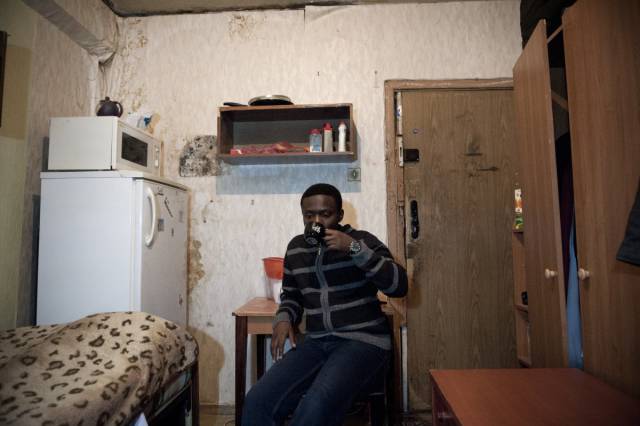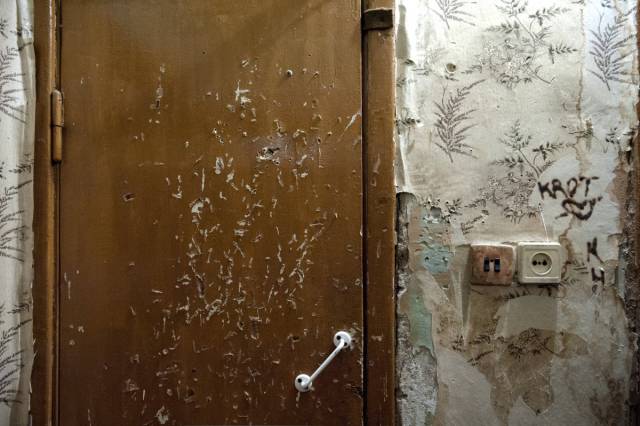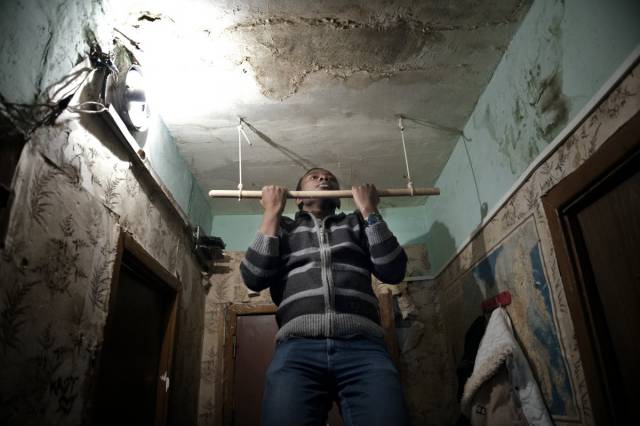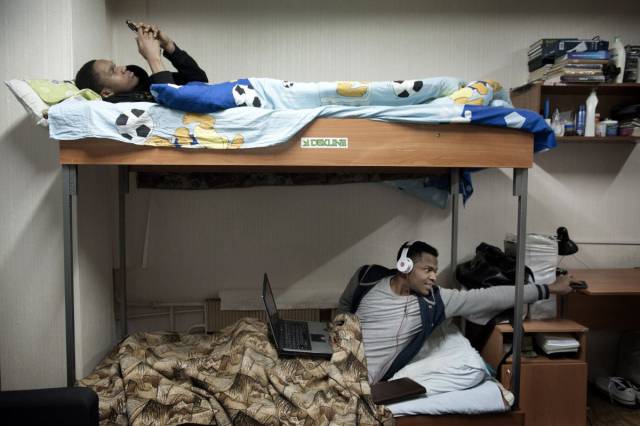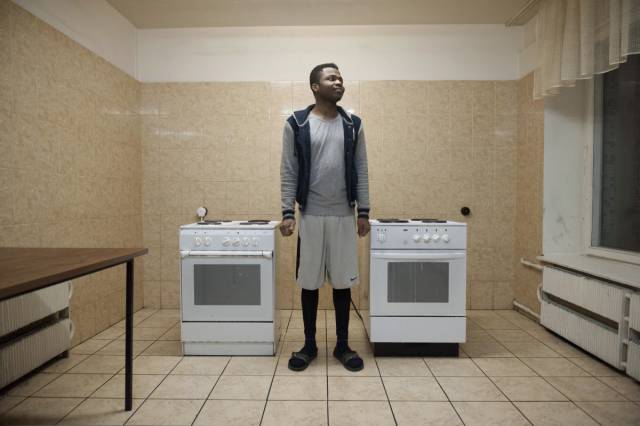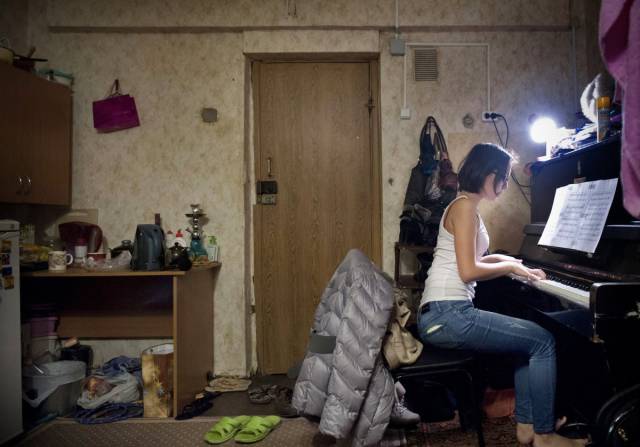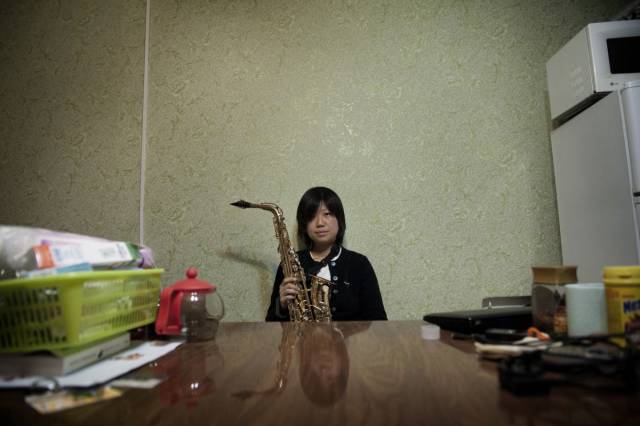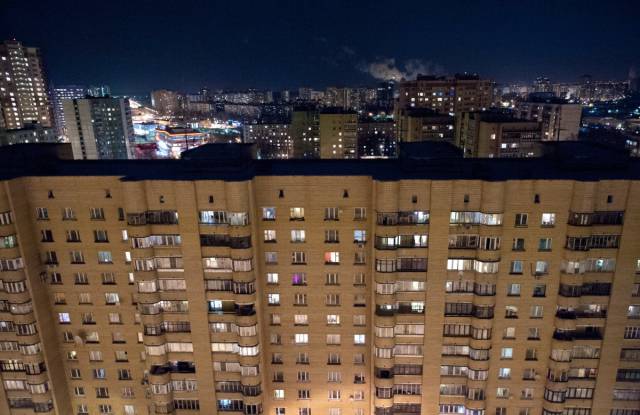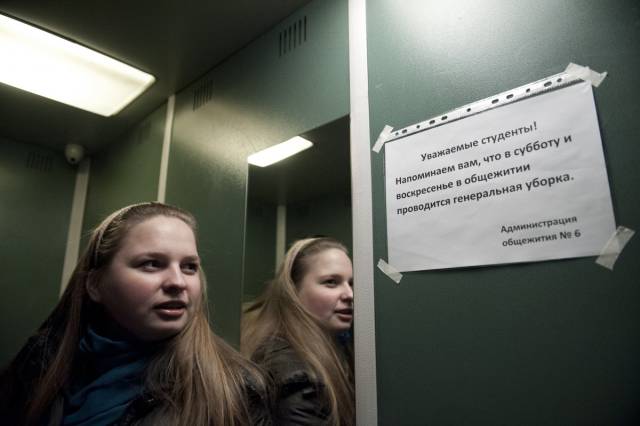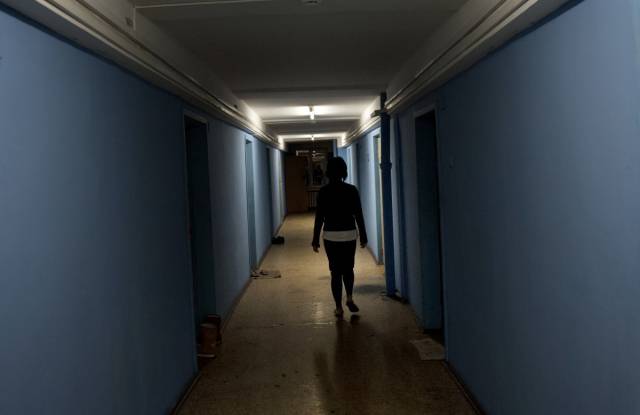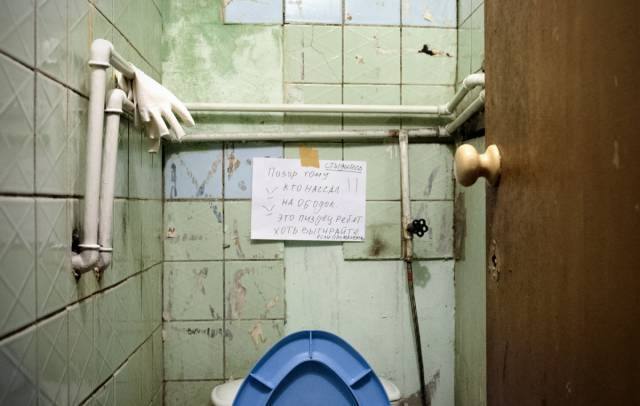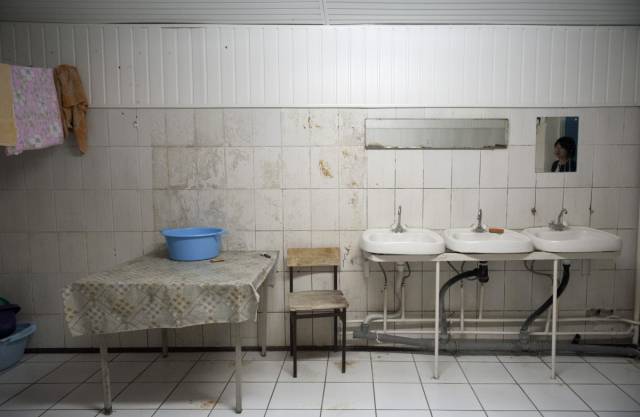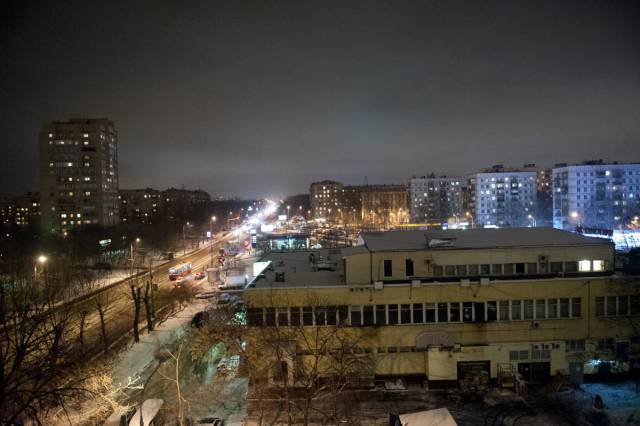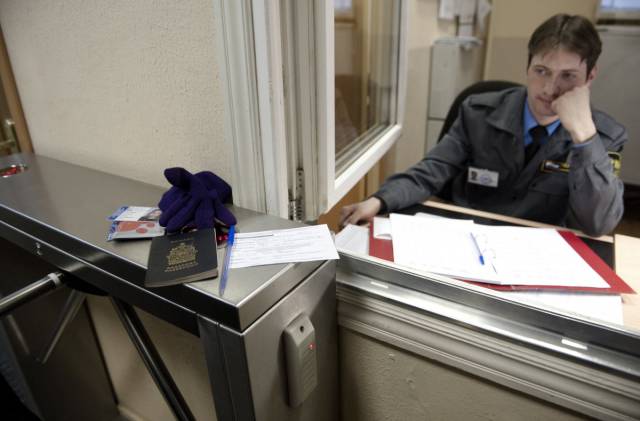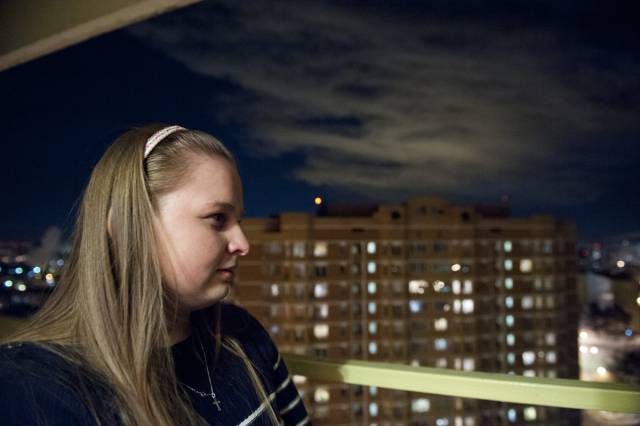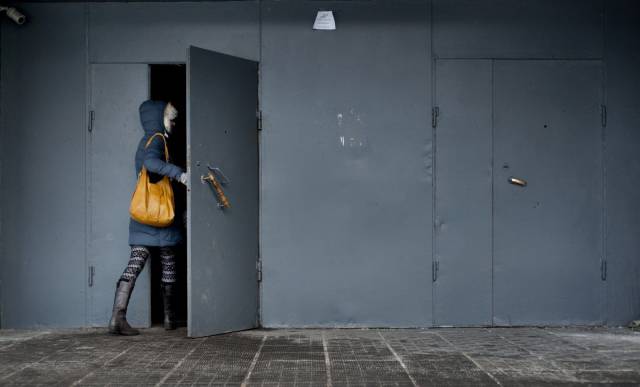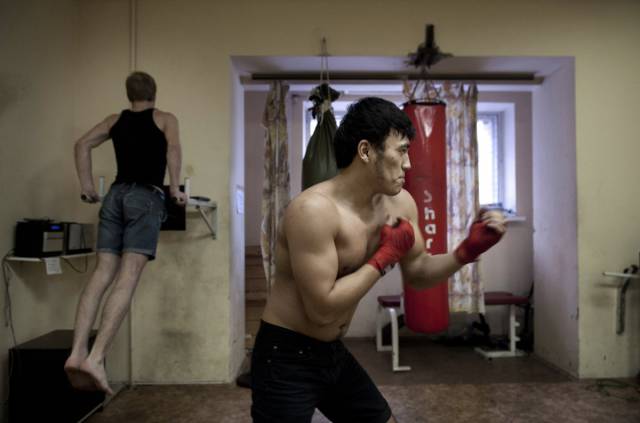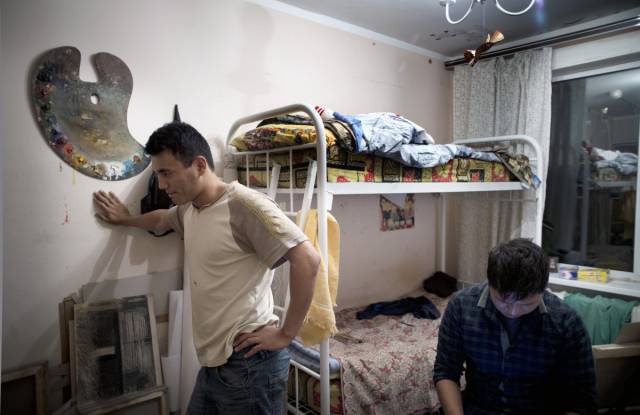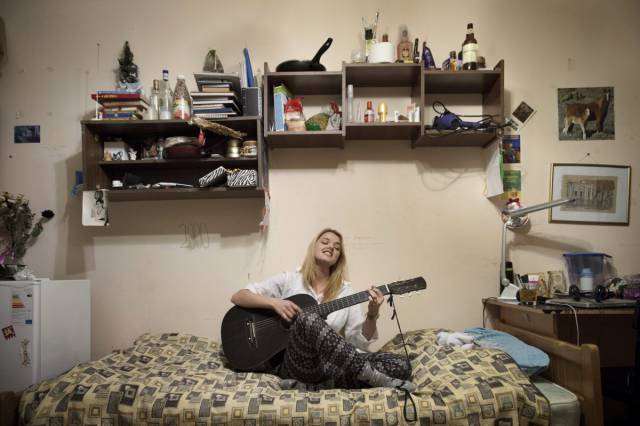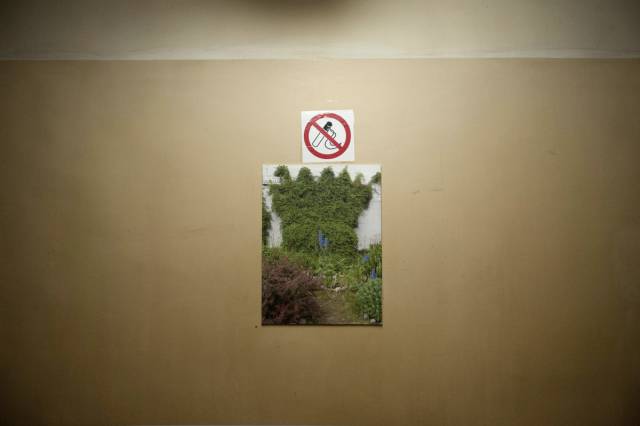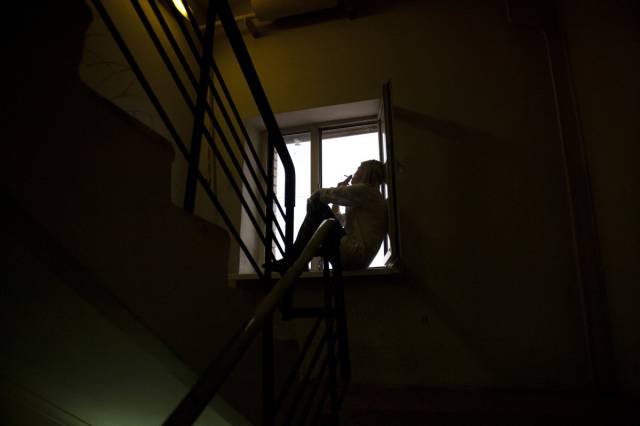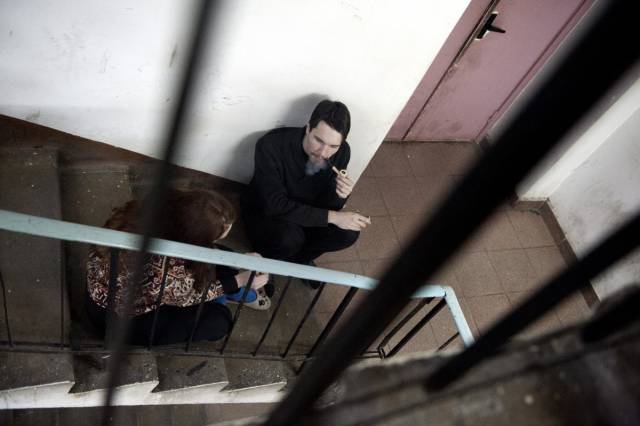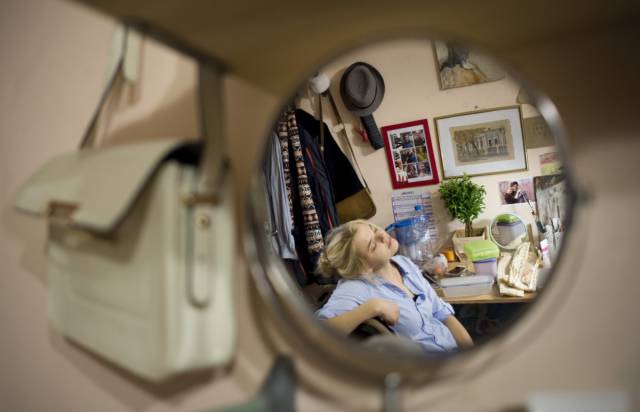Foreign students share their experience of living in Moscow dorms. It is not the best experience as very often there is minimal comfort and huge hygienic problems. Students share their beds with bedbugs and cockroaches plus there are frequent problems with leaky ceilings. Of course, these accommodations are not the first choice of students, but because of a very expensive rent in Moscow, they don’t really have a choice.
Kudakwashe Ndlova, a 25-year-old student attending Lomonosov Moscow University of Fine Chemical Technology, shares this obshaga with one other student from Russia.
Ndlovu, who attends the university on a scholarship, pays $10 a month for his room. "It's cheap. That's for sure," he told Dumont.
Ndlovu worries that water leaks from the ceiling could potentially cause an electrical fire at any moment.
Nigerian students Christopher Onoja, top, 22, and Issac Ismaila, bottom, 24, both came to Russia on a scholarship. "Honestly, I don't like anything about this place because the rooms are full of roaches and bedbugs. We renovated — the lighting, the wallpaper, everything — but it was a mess when we arrived," Onoja said.
Issac Ismaila stands between the two stoves of the floor's communal kitchen. It's commonplace for entire floors to share kitchens.
Dinara Vafina, a 26-year-old music student at the Moscow State Pedagogical University, told Dumont, "I don't have a problem living with roommates, but I would like to get my own place someday." According to Dumont, rooms shared between three and four people are generally around $50 a month a person if the students are not on scholarship.
Yang Zhao, a 25-year-old student from Beijing, tried to find an apartment when coming to Moscow for school, but she encountered what Dumont calls "xenophobic landlords." "I made phone calls for two months, and when someone would hear my accent and discover I was Chinese, they would say 'nyet!'"
Just like in any dormitory, Dumont notes that Russian university students "will tell you that dorm life is replete with formal and informal rules that everyone must learn to live by."
Elena Gasyukova, a 24-year-old student at the Higher School of Economics, reads a sign in the elevator that says, "The general cleaning days are on Saturday and Sunday."
Common chores at the dormitories include washing windows, floors, walls, kitchens, and bathrooms.
Notes in the bathrooms warn residents to keep it clean and tidy.
Not all dormitories are equipped with washing machines. Most students wash their clothes by hand.
Security at the dorms is tight. Guards generally lock the doors at 11 p.m. and reopen them again at 5 a.m. While it is possible to be let in past curfew, students said this was not a guarantee.
To enter a dorm in Russia, you need to be accompanied by a resident, provide your passport, and register your entry and exit.
According to Elena, attendants check in on students every night at 9 p.m. “They ask how you are. If your flat is dirty, they tell you what to clean,” she said. “If [the attendant] doesn’t see me for a while, she will make note of it and report it to my parents.”
Here's the entrance of the Moscow State Academic Art Institute's dormitory.
There, 24-year-old Zalkar Toktogulov from Kyrgyzstan, who studies painting, trains in the gym.
"Life here is good," he told Dumont. "I go to the gym almost everyday to stay in shape, but I'm not a professional boxer."
Inese Manguse, 24, plays guitar in her shared room.
"No smoking" signs are futile in Russian dorms. Students actively seek places where they can smoke in peace.
"The 12th floor is the best for smoking," said Manguse, who just arrived from Latvia.
Here, students at the Moscow Art Institute smoke in the hallways.
Dumont reflects on the dorm life of these students: "Every obshaga is home to its unique culture and set of rules, but residents all face the same challenge: make a home within a limited space and with limited resources."

